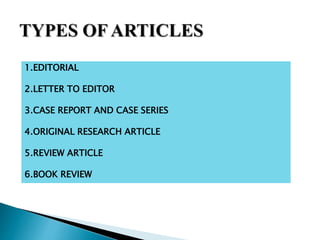Why sssdarticles is the Perfect Tool for Creating High-Quality Material
Why sssdarticles is the Perfect Tool for Creating High-Quality Material
Blog Article
The Mechanics of Articles: A Guide to Their Uses
Recognizing the mechanics of short articles is crucial for achieving quality and precision in communication. The distinctions in between the precise and indefinite articles can considerably change the definition of a sentence, affecting how info is communicated. Usual mistakes, such as the inaccurate application of "a" and "an" or the abuse of short articles with uncountable nouns, can cause confusion. As we check out these nuances, we will uncover not just the policies but likewise the methods for improving your writing. What ramifications do these mechanics have for reliable expression?

Kinds of Articles
When it involves understanding the types of short articles, it is important to damage down the differences that exist amongst them. Articles in the English language are categorized largely into two types: precise and uncertain short articles.
The definite article, "the," is utilized to describe details nouns that are understood to the viewers. It indicates that the noun it customizes is certain and recognizable, identifying it from various other possible entities. For example, in the phrase "guide on the table," the audio speaker suggests a certain publication that both the speaker and audience know with.
In comparison, uncertain posts, "a" and "an," are made use of to describe non-specific nouns - sssdarticles. They present nouns that are not formerly known to the reader or listener. For example, stating "a cat" does not specify which cat is being described; it could be any type of pet cat. The selection between "a" and "an" depends upon the phonetic context of the following word, where "an" is utilized before vowel noises.

Definite Write-up Usage
The definite article "the" plays a pivotal role in defining nouns within a sentence, enabling clear communication of concepts. Its primary function is to suggest that the noun it precedes is distinct or understood to the visitor or audience. In the expression "the book on the table," "the" signals that a particular publication is being referenced, one that is identifiable in the context.
" The" is typically used with particular and plural nouns, in addition to vast nouns, better boosting its adaptability. When discussing concepts, occasions, or entities that are universally recognized, such as "the Earth" or "the Internet," the definite article serves to emphasize their singularity. In addition, it can be utilized with superlatives, as in "the very best solution," to denote a particular level of contrast.
In numerous contexts, the certain short article additionally shows up with geographic names, institutions, and cultural referrals, such as "the United States" or "the Louvre." Comprehending its suitable usage is critical for achieving accuracy in language, thus promoting efficient interaction in both written and talked types.
Indefinite Post Usage
Uncertain posts, specifically "a" and "an," offer an unique function in language by presenting nouns that are not particularly recognized to the reader or audience. These posts share a feeling of abstract principle, indicating that the noun they modify is one of numerous feasible circumstances as opposed to a particular entity.
The option between "a" and "an" relies on the initial audio of the complying with word. "A" is utilized before words that start with a consonant noise, while "an" precedes words that start with a vowel sound. As an example, one would say "a feline" however "an apple." This guideline is critical for preserving fluidity and ease of enunciation in speech.
Uncertain short articles likewise come right into play when discussing occupations, citizenships, or affiliations. Overall, the right use of indefinite articles enhances communication by offering quality and accuracy concerning the nouns being discussed.
Typical Mistakes to Avoid
Many learners come across risks when using uncertain write-ups, which can cause complication in interaction. A common error is next page utilizing "a" before words that start with vowel sounds, such as "an honor" or basics "an umbrella." This mistake stems from focusing solely on the very first letter rather than the phonetic audio. Additionally, students commonly abuse uncertain articles with vast nouns, erroneously specifying "a water" rather of merely making use of "water," which does not need an article.
An additional constant error involves omitting the uncertain short article when it is necessary. One may claim "I saw dog in the park," disregarding to consist of "a." This omission can make sentences seem incomplete. Alternatively, using indefinite short articles excessively can also result in unpleasant phrasing, such as "I had a good time at a the celebration."
Understanding the contexts in which uncertain write-ups ought to be employed is critical. They are not used when referring to general groups, as in "Pet cats are lively," rather than "A pet cat is playful." Acknowledging these typical mistakes will certainly enhance clearness and accuracy in written and talked English.
Tips for Effective Usage
To effectively use uncertain articles, it is very important to comprehend their proper contexts and subtleties. Uncertain posts, particularly "a" and "an," are made use of to describe non-specific items or to present brand-new ideas. When using "a," bear in mind that it precedes nouns starting with a consonant sound, while "an" is made use of before vowel audios. This difference is essential for preserving grammatical precision.

Furthermore, avoid excessive using uncertain short articles in instances where specificity is called for. Technique reading numerous texts to observe just how knowledgeable writers utilize indefinite write-ups, enhancing your understanding of their efficient application.
Final Thought
Understanding the distinctive roles of certain and indefinite short articles allows for even more reliable expression of concepts. Inevitably, a solid grasp of short article use is essential for efficient scholastic and expert communication.
Report this page